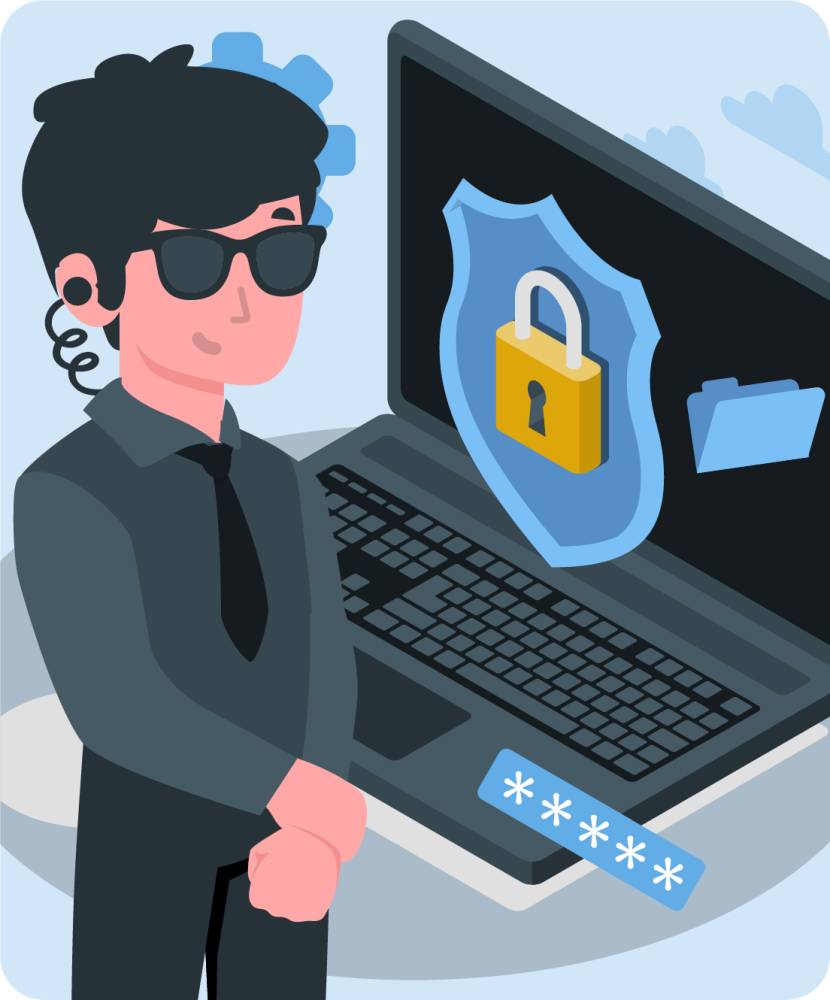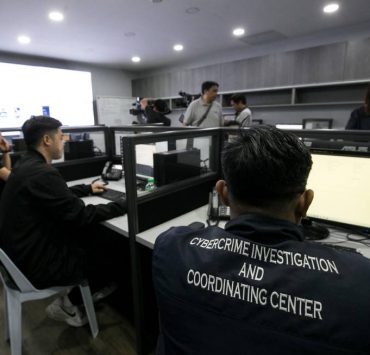Boost workplace cybersecurity: Tips from PH bankers

As the government enforces a mandatory mobile phone SIM (subscriber identity module) registration, local law enforcement agencies have warned that criminals are now shifting to internet-based schemes.
That warning highlights the difficulty of fighting cybercrimes in the Philippines, the world’s social media capital, as fraudsters quickly adapt to new defenses in place. The problem is so bad that the police Anti-Cybercrime Group has recorded a total of 19,884 cybercrimes last year.
Without enough knowledge on how to counter such crimes, one may fall victim to cybercriminals at any time—even while at work. That can create a big headache for companies that may suffer from financial losses and even reputational damage as a result.
A survey of Philippine companies conducted by Statista, a data provider, shows business interruption and data loss were the leading impacts of cyberincidents on businesses in 2022. The same poll also reveals that 24 percent of respondents have paid ransom to cybercriminals at one point.
According to the Bankers Association of the Philippines (BAP), there are things that employees and companies can do to improve their cyber hygiene.
Protecting files
Sometimes, one will only appreciate the importance of having backup files after experiencing a devastating data loss that can disrupt productivity. Companies may also incur extra costs just to recover lost data.”
There are multiple ways to back up files, such as using a hard drive or the cloud. Ensuring the security of your data is one of the core foundations of cybersecurity,” BAP says.
BAP likewise suggests encrypting files to prevent unauthorized access to them. This measure, BAP says, must be complemented with a strong password to safeguard data.
“By incorporating a blend of uppercase and lowercase letters, numbers and symbols, we can effectively enhance the security of the password, making it significantly more challenging for hackers to guess,” the group says.
”Ensuring the safety of your work data entails not just about preventing unauthorized access, but also sharing it only with people you trust,” it adds.
Caution on devices and messaging apps
BAP also advises workers to avoid using office devices for personal use, as this will allow hackers to single-handedly access both personal and company information in the event of a data breach.
At the same time, BAP urges employees to stay cautious when switching between their personal and business devices.”
To prevent this, if an employer gives you a device for work, use it just for that purpose. This lowers your exposure to the digital space, thus minimizing the possibility that an unknown entity might access your work data,” the group says.
“However, owning two devices might be cost-prohibitive for some people. If this is the case for you, keep in mind common cybersecurity tips such as using a VPN (virtual private network), avoiding public Wi-Fi hot spots and updating software,” it adds.
BAP also says that employees should make sure that only trusted and secure messaging apps are installed on their devices.”
To further protect that data, use only trusted messaging apps that encrypt conversations. This is because the developers of these apps have built-in encrypting tools to ensure your and your colleagues’ privacy,” BAP says. “Making these apps a core part of your daily office life helps you feel more secure about your internet privacy.”
Keep learning
Learning more about good cyber hygiene must not stop, BAP says, adding that companies must invest in cybersecurity training for workers.
There are cybersecurity softwares and programs that employees can learn to use to protect their work data from hackers. These programs and software must be regularly updated to utilize the latest defenses built by the developers against evolving cyberthreats, BAP says.
“Training sessions should ensure that employees are aware of the best practices for implementing cybersecurity in the workplace. Employees should also be completely informed of cybersecurity software programs available to them and how to use them to their greatest potential,” the group explains.
”To complement regular training sessions, giving employees a cybersecurity manual can reinforce the skills learned during training,” it adds.





















